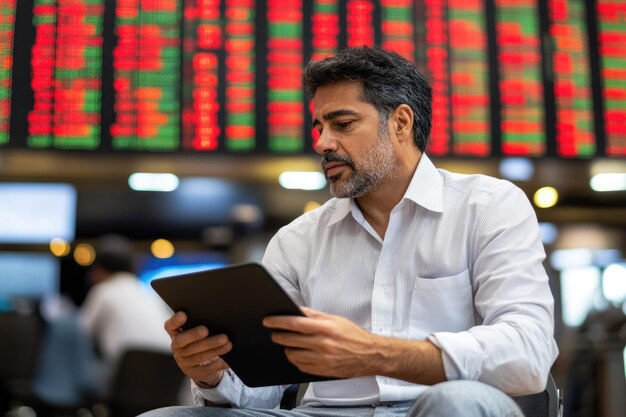Is Forex Trading Halal? Unpacking the Complexities
In a globalized world where financial markets are ever-expanding, the allure of Forex trading reaches far and wide. It's an accessible market, open 24/5, offering the potential for financial gain. But for many Muslims, a vital question arises: Is Forex trading halal? The answer isn't straightforward, and it brings us into the spaces where religion, finance, and ethics intersect. This article delves into the Shariah perspective, examining the factors that determine the permissibility of Forex trading within Islamic law.
Understanding Forex Trading
What is Forex Trading?
Forex, or foreign exchange, involves trading currencies from different countries. It's the largest financial market worldwide by trading volume, operating entirely online with traders quoting prices, buying, and selling currencies. Participants range from major financial institutions to individual retail traders.
Key Elements of Forex:
- Currency Pairs: Trading is done in pairs, such as EUR/USD (Euro/US Dollar).
- Leverage: Allows traders to control a large position with a small amount of money; this is a common feature in Forex.
- Speculation: Traders make profits by predicting currency movement, buying low, and selling high, or vice versa.
The Appeal of Forex Trading
The components that make Forex appealing to investors include its liquidity, the use of leverage, and the 24-hour availability which accommodates different time zones. However, these features also contribute to the debate around its status under Islamic law.
Islamic Finance Principles
Basics of Shariah Law
Islamic finance is anchored in Shariah law, which provides guidelines for economic activity to ensure all dealings are ethical and just. Central to Islamic finance are the concepts of riba (interest), gharar (excessive uncertainty), and haram (forbidden) activities. Any financial enterprise that involves these elements is typically considered impermissible.
Key Principles in Islamic Finance:
- Riba (Interest): Earning interest is banned as it's seen as usurious exploitation in transactions.
- Gharar (Uncertainty/Risk): Transactions should not involve excessive uncertainty or gambling.
- Profit and Loss Sharing: Encouragement of trade based on real economic activity and risk-sharing.
Is Forex Trading Halal or Haram?
Arguments For Halal
- Spot Transactions: Immediate trades are generally considered permissible since they involve real goods (currencies) exchanged promptly.
- Risk Management Tools: Strategies like stop-loss orders could align with risk-averse principles promoted by Islamic finance.
- Intention and Transparency: If trading is conducted with ethical intent and clarity, it might fit within Shariah boundaries.
Arguments For Haram
- Interest (Swap Fees): Overnight positions often incur interest charges, a form of riba, making such trades haram unless specific Islamic accounts (swap-free) are used.
- Leverage and Speculation: The high risks associated with leveraging and speculative trading create significant uncertainty (gharar).
- Day Trading: The rapid nature of day trading can resemble gambling, which is prohibited.
The Middle Ground: Islamic Forex Accounts
Features of Islamic Forex Accounts
For Muslim traders wishing to participate in Forex without contravening their faith, many brokers offer Islamic Forex accounts. These are designed to comply with Shariah principles by eliminating interest (swap-free), thus addressing the issue of riba. They may involve higher upfront fees or spreads as compensation for the absence of swap charges.
Considerations for Islamic Forex Accounts:
- Transparency: Full disclosure from brokers on how they remain compliant with Shariah norms.
- Commission Structures: Often used to replace interest-based fees.
Practical Guidance for Muslim Forex Traders
Evaluate Your Intention
Purity of Intention (Niyyah): If your purpose is to engage in ethical trading that aligns with Islamic values, this intention might guide your decisions and behavior in the market.
Choose the Right Broker
- Research and Select: Choose brokers offering compliant accounts after thoroughly researching their terms.
- Seek Advice: Consult with Islamic finance scholars or authoritative bodies to validate the broker's claims of being Shariah-compliant.
Adopt Ethical Trading Practices
- Risk Management: Use tools that align with risk minimization consistent with economic justice in Islam.
- Avoid Excessive Speculation: Refrain from trading strategies that closely resemble gambling.
Perspective from Islamic Scholars
Islamic scholarly opinion varies on Forex trading due to differing interpretations of Shariah principles and trading practices. Some advocate for caution or complete avoidance, while others see room for permissible trading through specific channels and methods.
Summary of Key Takeaways 📝
Forex Trading Basics: Involves currency speculation, appealing for its liquidity and leverage.
Islamic Finance Principles: Prohibits interest, excessive risk, and unethical practices.
Halal and Haram Debates: Focus on concerns about swap fees, leverage, and speculation.
Considerations:
- Forex is halal under strict conditions reflecting genuine exchange.
- Islamic accounts offer swap-free options but require careful examination.
- Transparent intent and ethical practices align with Shariah values.
A Balanced Approach to Forex Trading
By adopting a balanced and informed approach, Muslim traders can navigate the complexities of Forex trading. While some aspects might align with Shariah, others introduce conflicts requiring careful consideration. Choosing Islamic Forex accounts and adopting ethical practices can provide pathways for Muslims interested in participating in this vast financial market without compromising their beliefs.
The Forex landscape is ever-evolving, as is the interpretation of Islamic finance within it. As such, staying informed and seeking scholarly guidance remains imperative for those traversing this financial frontier.

